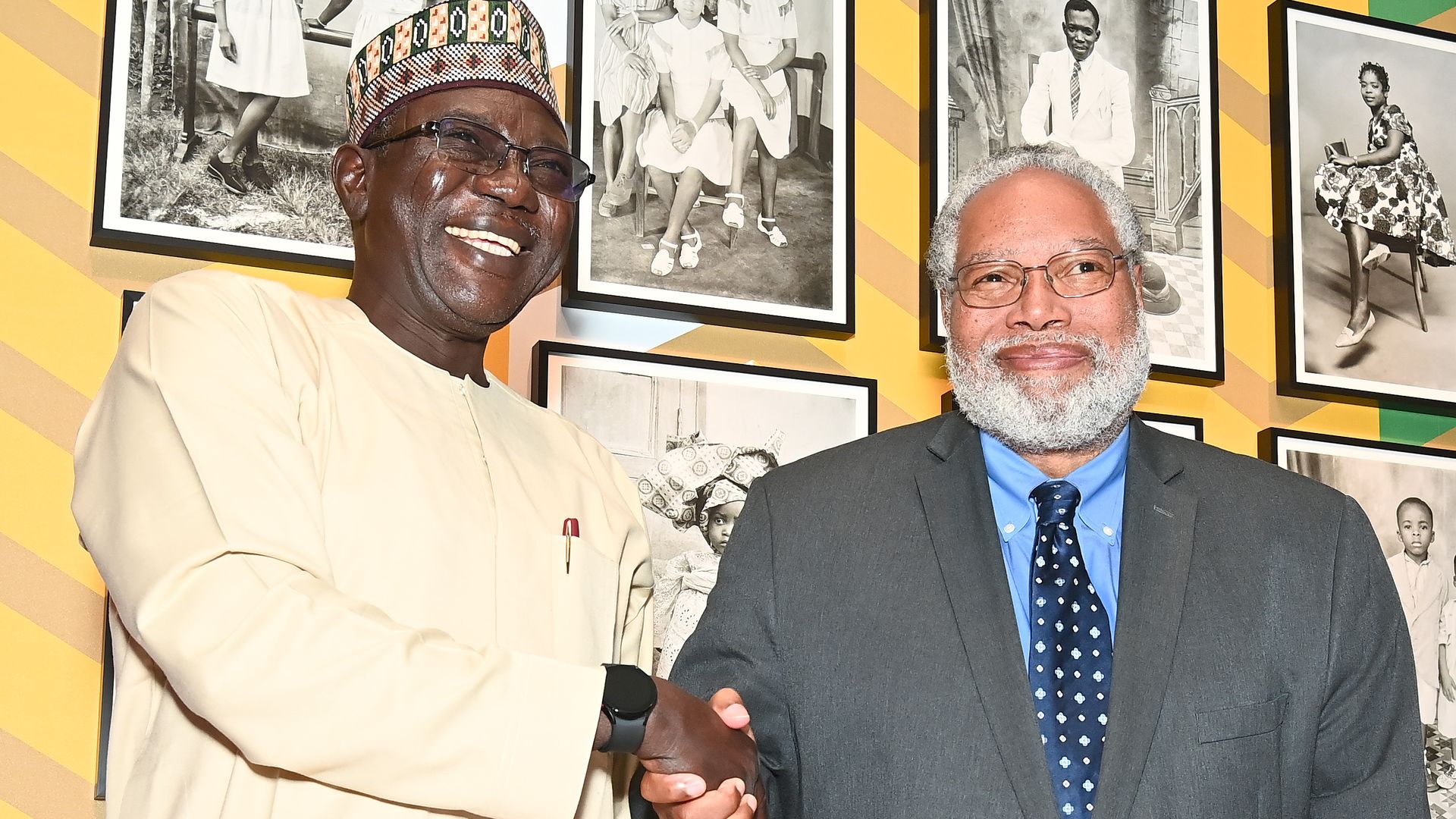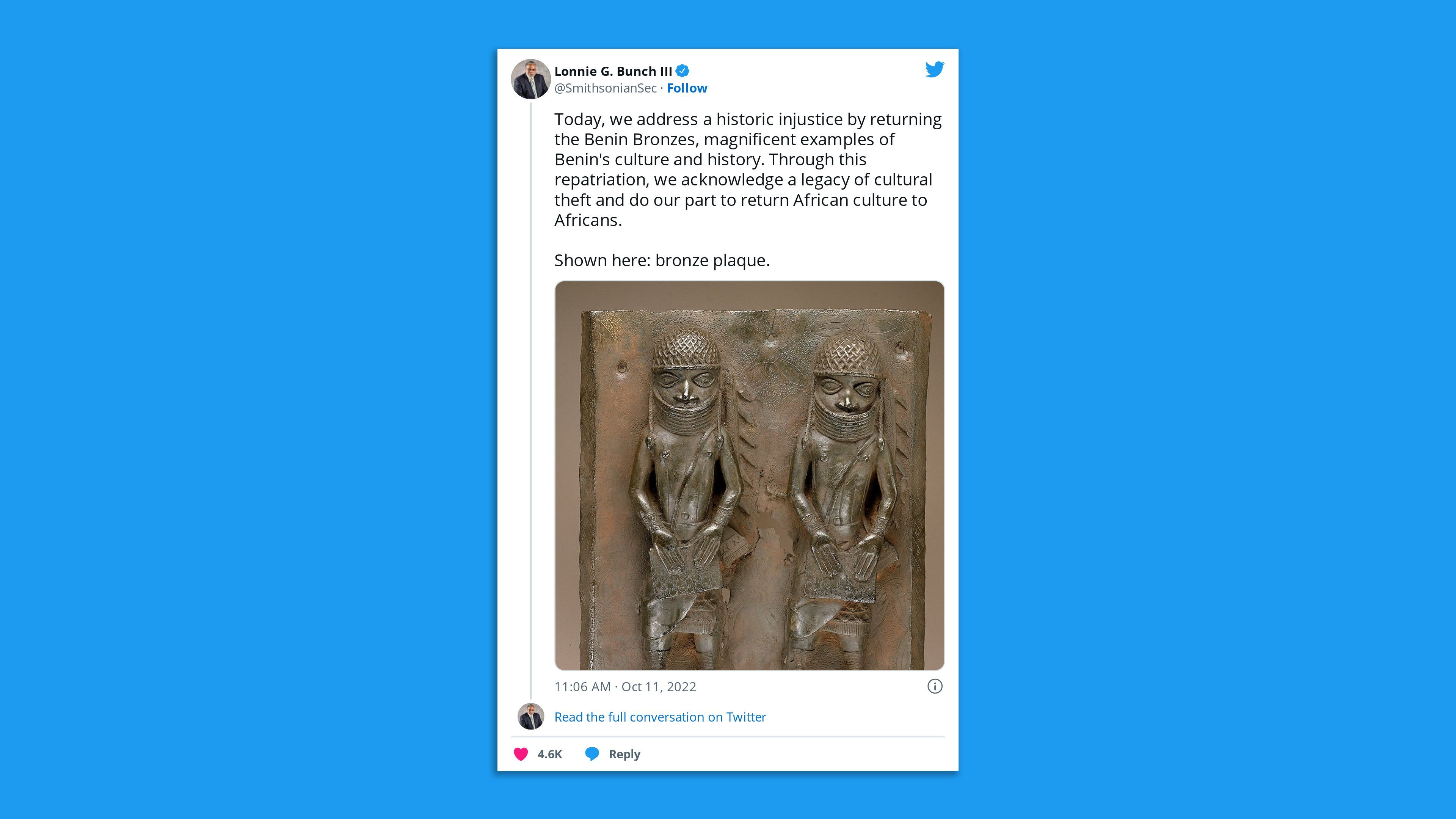
Abba Isa Tijani (left), a Nigerian professor of museology and anthropology, with the Smithsonian's Lonnie Bunch at a Benin Bronzes repatriation ceremony at the National Museum of African Art in Washington on Tuesday. Photo: Shannon Finney/Getty Images
The Smithsonian's National Museum of African Art held a ceremony Tuesday to mark the return of 29 Benin bronzes that were stolen during a British raid on Benin City in Nigeria in 1897.
The big picture: Global anti-racism protests sparked by the 2020 murder of George Floyd renewed calls to return relics that were looted during the colonial era. Benin bronzes have become a focal point of this drive, as more Western cultural institutions move to give back previously plundered artifacts.

Of note: Tuesday's ceremony transferring ownership of the Benin bronzes to the National Commission for Museums and Monuments in Nigeria follows similar ones in Europe last year — with Paris' Quai Branly Museum among those returning bronzes.
- Now, the "Smithsonian — the largest museum system of its kind in the world — hopes to inspire other museums to follow suit," the Washington Post notes.
Details: The ceremony was held in conjunction with the National Gallery of Art, which returned the Benin bronze from its collection, per a statement from the Smithsonian.
- "The return of these Benin Bronzes is the first return under the Smithsonian’s new ethical returns policy announced this spring," the statement noted.
- "This policy authorizes Smithsonian museums to return collections to the community of origin based on ethical considerations."
What they're saying: "By returning the artefacts, these institutions are together writing new pages in history," said Lai Mohammed, Nigeria's minister of information and culture, in a statement.
- "Their brave decision to return the timeless artworks is worth emulating."
What we're watching: The Smithsonian's National Museum of Natural History has a collection of 20 Benin bronzes.
- "Provenance research for that collection has been undertaken and will be submitted to the Board of Regents as a request to deaccession bronzes obtained during the 1897 expedition and return them to Nigeria," the Smithsonian said.
